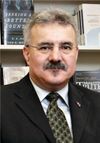The marvellous story of the French Calvinists after the time of John Calvin, those men and women known to history as the Huguenots, is barely known today. They include such strong Reformed believers as Admiral Gaspard de Coligny (1519-1572), Jean-Baptiste Morelli, Jean Claude (1619-1687), and Claude Brousson (1647-1698). Their names are rarely heard in English-speaking Reformed circles, even though they were contemporaries of the English-speaking Puritans.
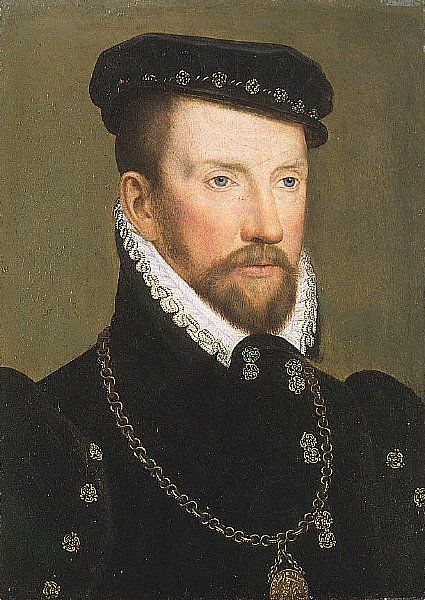
This year marks the 400th anniversary of the 1598 Edict of Nantes. This was the law signed by King Henri IV ending the French Wars of Religion that had been ripping France apart since 1562. The law allowed the Huguenots free exercise of their Calvinistic faith in twenty specified towns in France, and gave them breathing space for a few decades to recoup and rebuild. Prominent in those Huguenot communities that developed after the Edict of Nantes was the theologian Pierre du Moulin (1568-1658). One of the most learned men of his age, du Moulin exercised a powerful influence over French Reformed life and thought, like no individual since his day.
Pastor in Paris
Du Moulin’s roots were solidly evangelical. His father Joachim served as a Huguenot minister for fifty years, while his maternal grandfather Innocent Gabet was martyred in the St Bartholomew’s Day Massacre. This took place in 1572, when Catholic forces in France went on an orgy of killing, and possibly as many as 30,000 French evangelicals perished. From 1588 to 1592 du Moulin studied in England under the tutelage of William Whitaker (1548-1595), a noted Puritan divine. For the next six years du Moulin taught philosophy and Greek at the University of Leiden in the Netherlands till he was called in 1598, the year of the Edict of Nantes, to assume the pastorate of the Huguenot church of Paris.
When he arrived in Paris the church was worshipping in Ablon, about ten miles outside the capital. Through du Moulin’s leadership the church relocated itself closer to the city at Charenton-St Maurice, then about a mile away. Here at Charenton, one of the great Huguenot churches (known as ‘temples’) was built. Though burned to the ground in 1621 by a Catholic mob, the Charenton Temple was subsequently rebuilt and served as a focal point of Reformed worship in the Paris region until 1685, when it was destroyed shortly after the Revocation of the Edict of Nantes.
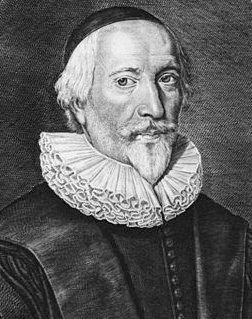
Du Moulin served the Paris congregation from 1598 to 1621, when Louis XIII, the king of France, expelled him on the pretence that the Huguenot pastor was dabbling in international politics. The final thirty-seven years of his life were spent in the Protestant state of Sedan, an independent principality in northern France, where he served in a dual capacity as a pastor and professor of theology in the French Protestant seminary there.
The godly polemicist
It was during his time as pastor of the Paris church that du Moulin gained his reputation as the greatest of the Huguenot polemicists and the main spokesman for the French Calvinist cause. He often debated with Roman Catholic theologians in public and it was said that he was never outwitted by any of them. His ability in oral debate was matched by his facility with the pen. In the words of Brian Armstrong, an historian of this era of French Calvinism, du Moulin’s written ‘style is direct, terse, and unencumbered. One never encounters long, complicated sentences or phrases. And above all, it is witty and … drawn in the language of the common man.’ He wrote close to a hundred polemical works which went through more than 350 editions in his lifetime, not to mention translations into English, Dutch, Italian, German and Latin. On the other hand, he was also known as an extremely godly man, who produced a significant number of popular works relating to Christian spirituality. His treatise on how to prepare for the Lord’s Supper, for instance, went through over eighty editions.
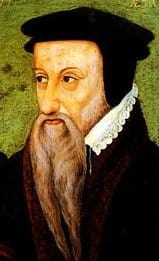
Arminius
Among the most important of his polemical writings is his rebuttal of Arminianism, simply entitled An Anatomy of Arminianism (1619), which he originally published in Latin. Arminianism, rooted in the teaching of the Dutch theologian Jacob Arminius (c.1559-1609), had brought great dissension to the international Calvinist community during the 1610s. In his final years, Arminius had basically resurrected the late mediaeval error of semi-Pelagianism, against which the Reformers had taught so clearly and distinctly. Although he was raised in a Reformed environment and trained by Reformed theologians, notably Theodore Beza, Arminius argued for definite limits to be placed on God’s rule of his creation.
For instance, according to Arminius, God offers grace to all men and women, yet they can successfully repulse his overtures of grace and frustrate his attempts to bring them to salvation. Again, Arminius maintained that having placed one’s faith in Christ is no guarantee of eventual salvation. Some believers can come to the point where they exercise their free will to walk away from their commitment to Christ. Thus they fall away completely from God and are lost.
The Synod of Alès
The international Calvinist community sought to respond to this erroneous perspective on salvation by calling a synod, the Synod of Dort (1618-1619). The synod’s delegates from the Netherlands, Germany, England and Switzerland were unanimous in their condemnation of Arminianism, as they set forth what has come to be known as the Five Points of Calvinism. Delegates from the French Reformed churches, as well as du Moulin, were also invited to the gathering at Dordrecht, but Louis XIII refused to allow either him or other French pastors to attend.
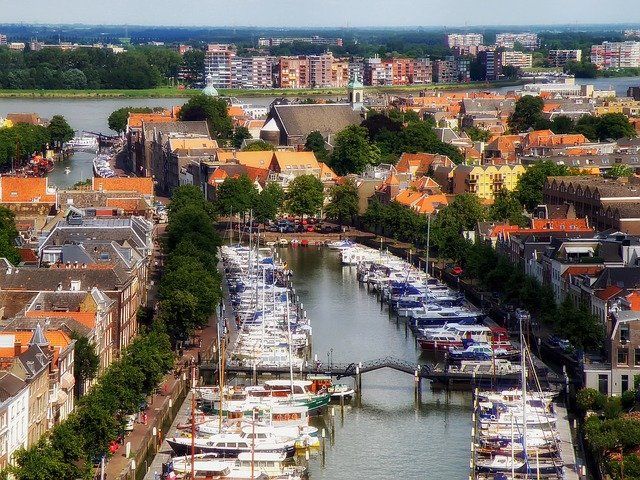
Although du Moulin was not able to attend the synod, he was in full agreement with its decisions. He presided over the French national Synod of Alès, held a year or so later in 1620. There the Canons of Dort were adopted and du Moulin thus helped to preserve the French churches’ adherence to biblical Christianity. He led his fellow French pastors to affirm that ‘the doctrine of the Arminians [is to be rejected, since] it makes divine election depend on the will of man; weakens and destroys the grace of God; elevates man and the powers of his free will…; brings back Pelagianism; disguises Popery; and overthrows all certainty of salvation.’
All the praise to God
Du Moulin’s massive tome, An Anatomy of Arminianism, follows the order of the five Canons of Dort and defends each of them against Arminian criticisms. For instance, responding to the Arminian rejection of the irresistibility of the Spirit’s work in bestowing saving faith, du Moulin rightly states: ‘We do not acknowledge a conversion in which man does nothing but is only passive. For we know that a man is so drawn by a sweet and effectual motion that his will is bent and turned, so that instead of being unwilling he is made willing, and … he is thus moved of his own accord. We thus affirm that it is man himself who believes and repents, not God. But we also say that it is God who gives man the power to believe and repent.’
As du Moulin looked at the Arminian system he saw striking similarities between it and the dominant religious perspective of his own native France, that of Roman Catholicism. In response to both of these religious viewpoints, du Moulin could thus declare: ‘Why should we be afraid of giving too much praise to God or attributing too much to his grace, or humbling ourselves too much before him? Why should we make man enter into a partnership with God, to attribute some of this praise to God? True religion is that which gives all praise to God and all the benefits to man. It humbles man so as to glorify God’ (The Newness of Popery, 1627).
Though du Moulin has been long forgotten by the majority of those who rejoice in the Reformed faith, he deserves to be better known as one who played a vital rôle in defending biblical Christianity at a time when it was threatened by Roman Catholic persecution from without and Arminianism from within.


